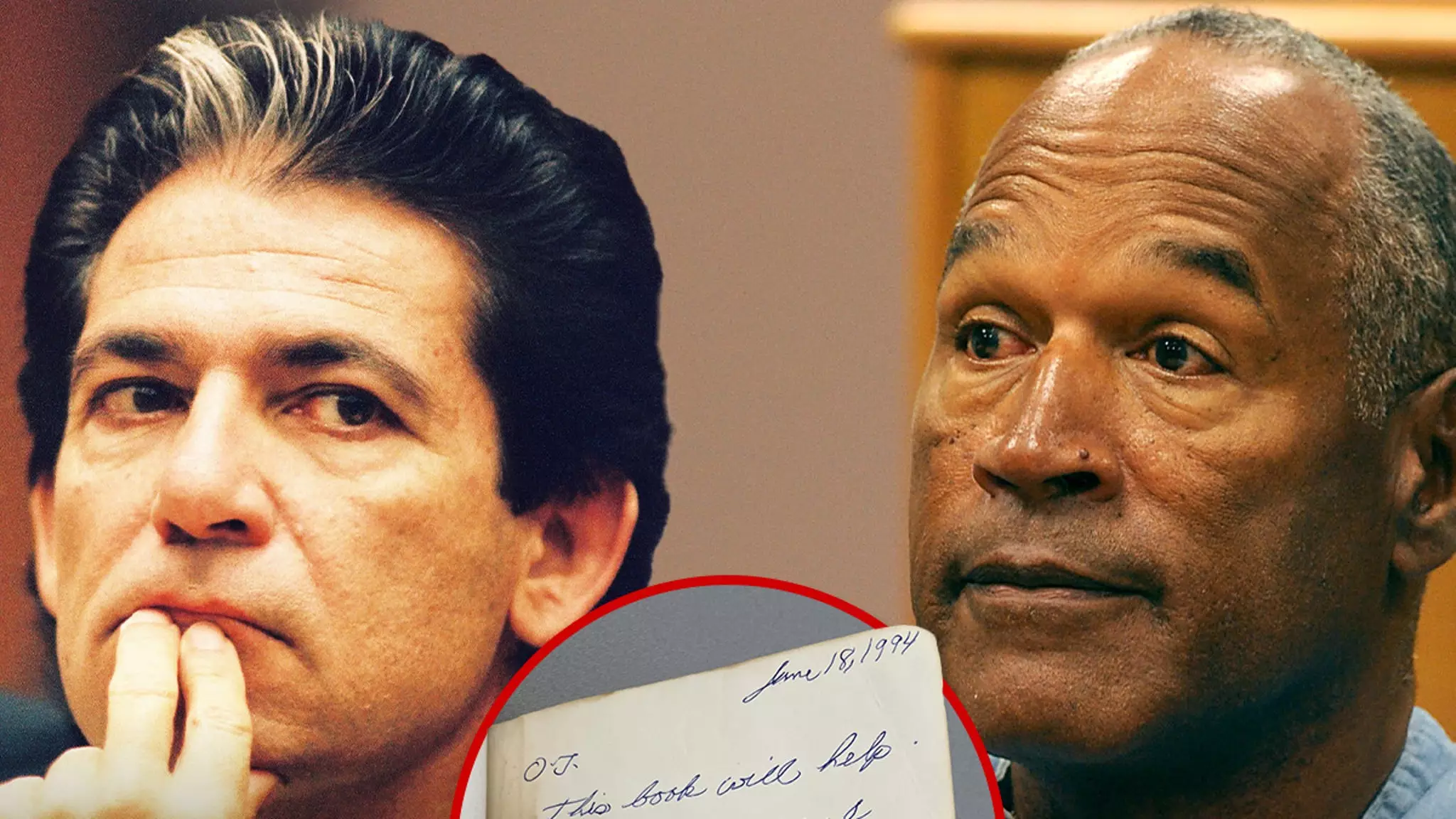The recent unveiling of a Bible, a gift from Robert Kardashian to O.J. Simpson following the notorious Bronco chase, has ignited discussions on the intertwining legacies of these two historical figures. The inscription penned by Kardashian, a notable member of Simpson’s defense team and father to the Kardashian clan, is more than just a personal note; it encapsulates a moment in time that reflects both camaraderie and moral support amid a national spectacle. Given the gravity of the events surrounding the chase in 1994, the Bible serves as a poignant symbol of hope and connection within an atmosphere charged with tension and turmoil.
Scheduled for auction between March 12 and March 29, this Bible is part of a broader collection that tells the story of O.J. Simpson’s rise and fall—the American Dream turned tragic. While anticipation swirls around the auction, potential legal complications loom large. Simpson’s estate, spearheaded by attorney Malcolm LaVergne, is attempting to navigate these challenges amidst objections that might arise from Simpson’s children. The legal tussle reflects ongoing familial dynamics and unresolved tensions resulting from Simpson’s controversial life choices. This creates a complicated backdrop as collectors and fans alike grapple with the fascinating yet tumultuous history tied to these artifacts.
The backstory surrounding the Bible’s intended return to Kardashian’s family further complicates the narrative, emphasizing the shifts in personal connections and ownership as circumstances evolve. Following Kardashian’s passing from cancer in 2003, the lingering sentiment attached to his wish for the Bible to return home adds depth to its auction value. It raises questions not only about who truly deserves these mementos but also about how fame and legacy disrupt personal bonds. The Bible, infused with Kardashian’s heartfelt words, represents more than mere ownership; it underscores a longing for reconciliation and remembrance.
Simpson, recently vaulted back into the public consciousness through a Netflix documentary scrutinizing his infamous trial, serves as a reminder of America’s obsession with celebrity culture and crime. The juxtaposition of Simpson’s life story against the backdrop of popular media invites a broader conversation on the morality of commodifying such narratives. As the auction approaches, attention is focused on not only the items being sold—including memorabilia featuring former political leaders but also depictions of Simpson’s cinematic contributions—but the manner in which society grapples with the relics of morally complex figures.
The implications of this auction, especially regarding the Bible inscribed by Robert Kardashian, resonate beyond its monetary value. They call into question contemporary society’s fascination with notorious figures and invite reflection on their legacies. By examining how people choose to remember and celebrate—or critique—iconic individuals, we may rethink our own values in a world increasingly driven by celebrity culture. As the auction date nears, observers will inevitably wait with bated breath to see how Simpson’s estate, the Kardashian family, and the public navigate this delicate and layered historical narrative, marking yet another chapter in the ongoing saga of fame and infamy.

